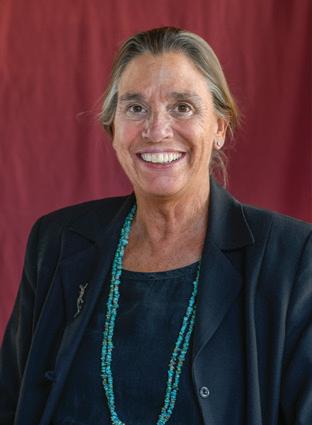
13 minute read
Meet Moab's new city councilmembers
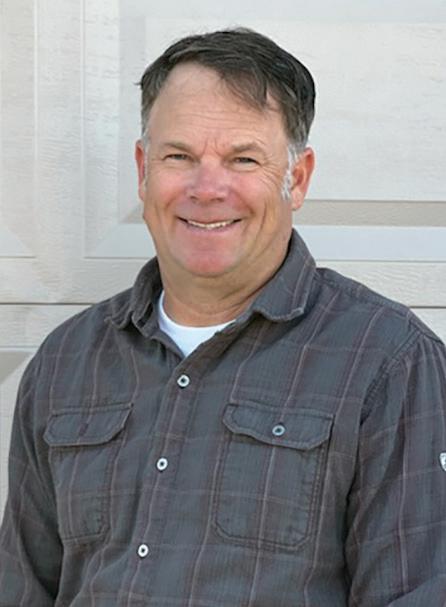
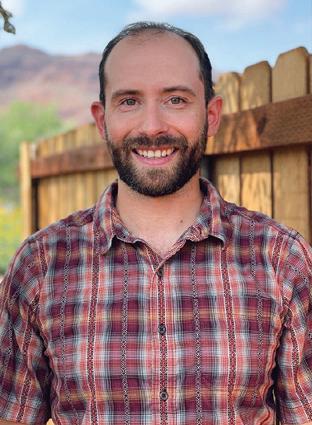
MEET JOETTE, JASON AND LUKE
Get to know Moab’s newest city council members
Written by Rachel Fixsen
Three recently elected officials — Mayor-elect Joette Langianese, and city councilmembers-elect Jason Taylor and Luke Wojciechowski — say they are ready to face these challenges when their terms begin in January:
Among the sentiments that the incoming officials say they heard most often from residents on the campaign trail were: a desire for a strong sense of community and livability; a concern about the lack of affordable housing; needed infrastructure upgrades; the importance of economic opportunity and diversification. All three say they are committed to making sure community members feel engaged and valued in local decision-making.
Here’s a closer look at each councilmember, what brought each of them to Moab, and what they hope to contribute in their new role serving local residents.
MOAB IS A SMALL, RURAL TOWN FACED WITH SOME BIG, REAL-WORLD ISSUES. ALTHOUGH THE CITY HAS ONLY ABOUT 5,500 RESIDENTS AND ABOUT 9,000 IN THE COUNTY, THE MOAB AREA HOSTS NEARLY THREE MILLION VISITORS ANNUALLY. MOAB LEADERS ARE TASKED WITH INCREASINGLY COMPLEX CHALLENGES RELATED TO THE SURGING POPULARITY OF THE AREA.
MAYOR-ELECT JOETTE LANGIANESE
Joette Langianese grew up “in a little Italian village in Pennsylvania,” surrounded by the Allegheny Mountains. “My dad used to take us hiking every weekend,” she recalls, adding with a laugh, “We’d hike up this hill and I’d start crying because I was tired and he’d have to carry me down.” In spite of those childhood protests, Langianese developed a deep appreciation for the outdoors.
“When I discovered Utah, I was like, ‘Oh my gosh, this is the place!’ When I first got here, I just fell in love with it. It just felt like this is where my heart belongs.” She’s now the executive director of the nonprofit Friends of Arches and Canyonlands National Parks, which focuses on encouraging connection with, and stewardship of, the landscape.
Langianese said she was always independent and loved exploring, and that’s how she ended up in Utah. After high school she attended the University of Utah in Salt Lake City, and often visited Moab on breaks and weekends. During that time, she exchanged letters with her grandmother in Pennsylvania, who lamented that Langianese was so far away.
“She would always say, ‘I wish you would move back here so you could take care of me!’” Langianese recalls. She got inspired to study gerontology, which looks at the social, psychological and biological aspects of aging. She told her grandmother that while she had a large family with many relatives who could help care for her, there were people in the West who were alone and needed care, too.
“I wanted to be able take care of people as they age,” Langianese says. After college she lived in San Francisco and began a career in the field, and continued to visit Moab every year. She eventually got a job at the Allen Memorial Hospital, which served Moab before Moab Regional Hospital was built. She also went on a San Juan River trip where she made a happy acquaintance: Steve Russell, the man who would later help her buy property in Castle Valley, and later still become her husband. Russell, an attorney, has owned and operated the Grand County Law and Justice Center in Moab since 1993.
Langianese sold her property in Castle Valley a few years ago and moved to Moab. She continues to advocate for care for the elderly. She was a main driver behind the establishment of the Canyonlands Care Center and the Moab Area Partnership for Seniors apartment building that opened in 2020.
She’s also been involved in other causes for the community, such as lobbying lawmakers in Washington, D.C. to help Moab get the uranium tailings moved more quickly from a site left by the former mining and milling operation located next to Highway 191 and the Colorado River. She served for eight years on the Grand County Council (which is now the Grand County Commission.) She’s watched the town evolve over the years.
“Probably the most significant change is what we’ve all seen—the increase in visitation,” she says. “I’ve been here going on 25 years; When I came here, we’d go up to [the Island in the Sky District of Canyonlands National Park] and we’d be the only ones there.” She says she understands the growth in tourism.
However, she said many residents she spoke with have a sense of losing their community in the crowds, especially in the wake of the pandemic shutdowns, when locals were faced with isolation and economic insecurity.
“Every single person I talked to had that feeling of, ‘We’re lost’ and, ‘Are we really a part of this community anymore?’” Langianese said of her conversations with residents during her campaign. “Getting the community to feel good about where they live,” she says, is one of her goals.
As Moab’s new mayor, Langianese has a substantial list of issues she’d like to tackle, starting with filling open staff positions at City Hall.
“People are not very confident in City Hall, and we have an opportunity to change that,” she says. Other issues include housing, protection of public lands, and drought and water security. She’ll continue to advocate for elderly care and serve on the board of the Canyonlands Health Care Special Service District. She also hopes to strengthen Moab’s voice at the state legislature.
She says problems won’t get solved overnight, but that diligence and collaboration will improve things piece by piece.
“We have to get creative, look at the resources we have, come together as a community and figure out how to solve problems together,” she says.
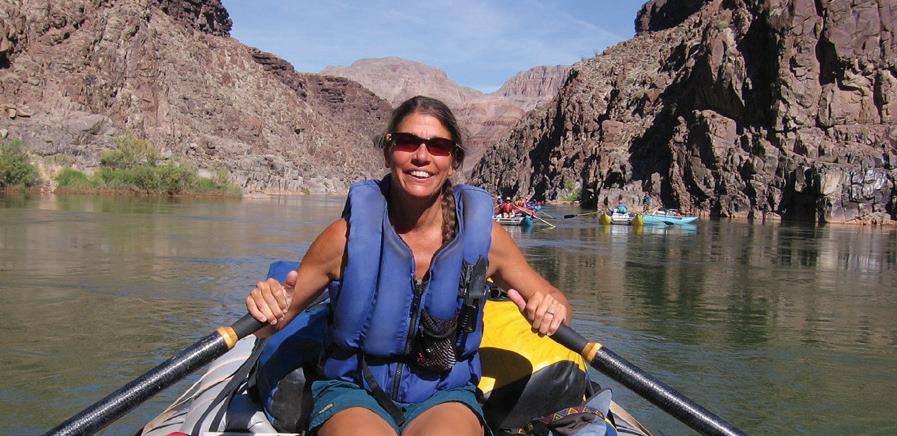
Mayor-elect JOETTE LANGIANESE
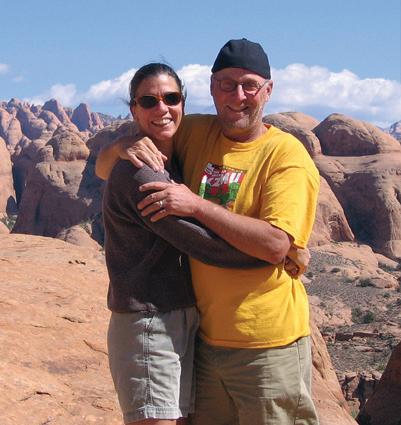
CITY COUNCILMEMBER-ELECT JASON TAYLOR
Jason Taylor grew up in the Utah Valley and first began visiting Moab as a kid in the 1980s. His father worked for a bank and had the difficult job of placing repossessed homes back on the market, something that was happening a lot at that time in Moab, as the uranium industry and the local economy cratered.
“He would usually drop me off at the Slickrock Bike Trail and I’d go ride all day,” Taylor remembers of those early trips to Moab with his dad. For the first hour of the drive home, he says, his dad would be in a low mood after the day’s dispiriting work.
“No one had jobs,” Taylor says. “It was rough.”
As a high school student, Taylor continued coming down to Moab with friends to ride the mountain bike trails, and in the mid-1990s took a summer job as a local rafting guide.
“Eventually it was like, ‘I should just live here!’” Taylor says. The access to outdoor recreation was unparalleled, and he knew he had fun and fulfilling employment in the area. He and his wife moved to Moab full-time in the late 1990s and tried to make ends meet. It was difficult at first, Taylor says. As soon as the summer guiding season ended in September, he would stress about making it through the winter until tourists returned in March. He noticed a shift after 2002, when Salt Lake City hosted the Winter Olympics. Tourism in the state seemed to pick up after that. These days he says people in the tourism industry in Moab have much more confidence that they can sustain themselves.
“We used to shut down in September. Now we’re busy through Thanksgiving, which is good,” Taylor says. Around 2010, after years of working in the tourism industry, he decided to join the Moab Area Travel Council to learn more about what was happening in the industry beyond Moab, and to try to encourage the council to promote rafting more.
“At the time, the travel council was a lifeline for a lot of businesses and a lot of economic growth,” Taylor says.
He still works in the tourism industry: he’s an owner at Canyonlands Jeep and Car Rentals and also works for Western River Expeditions, a raft guiding company. After joining the travel council Taylor got involved in other community boards and organizations. He joined the Chamber of Commerce and served its president, and also served on the board of the Canyonlands Field Airport. He continues to serve on the board of the Grand County Emergency Medical Services Special Service District, after having served as a volunteer EMT for 12 years. He put himself through an EMT course in 2004 to be able to volunteer.
Taylor says the volume and complexity of calls the district receives means that it’s no longer practical to have volunteers filling the role of first responders. The district was established as its own entity separate from the county in 2018 and pays its EMTs. It’s one indicator of how much Moab has grown since the days when Taylor rode his bike on a deserted Slickrock Bike Trail in the 1980s.
“My big focus on the city council is, where are we going, and what are we going to do to sustain the growth that makes it so that it’s a great place for locals to live?” Taylor said of his leadership goals.
Taylor is married and has three children, and while he says he understands the importance of tourism to the local economy, as part of the industry himself — he also recognizes the need to provide services, amenities, and protections for local residents.
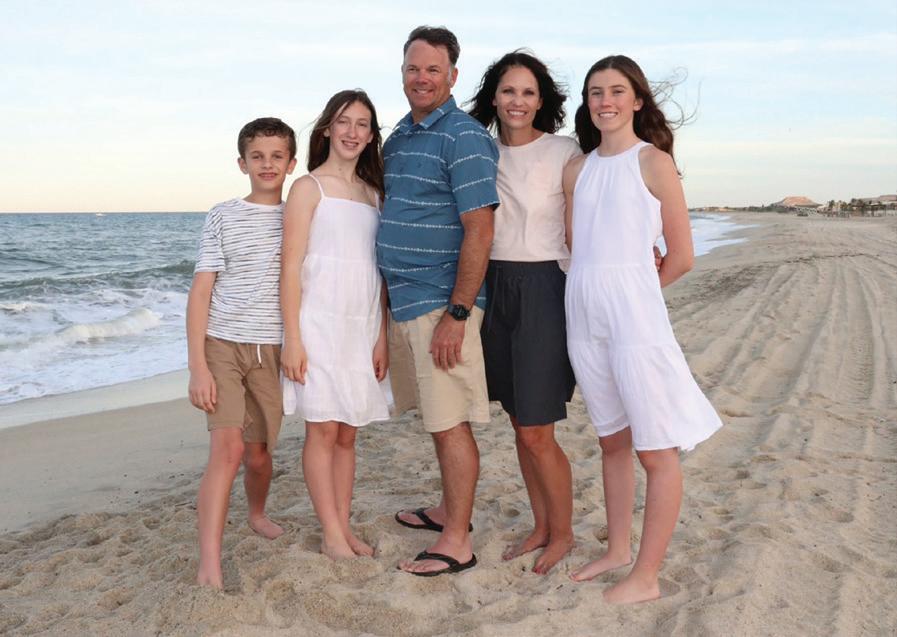
Councilmember-elect JASON TAYLOR
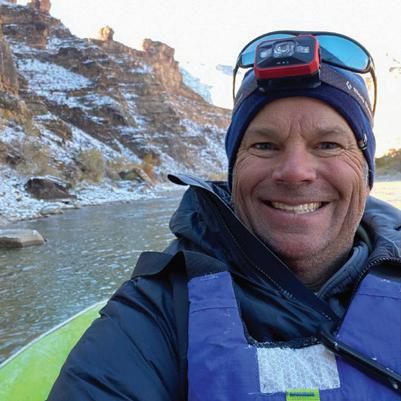
CITY COUNCILMEMBER-ELECT LUKE WOJCIECHOWSKI
Luke Wojciechowski was born in Poland, and his family moved to the United States when he was five years old. Communism had collapsed in Poland a few years earlier, and his parents were drawn to the promise of the American Dream. They won a visa lottery and moved to Chicago, where they had relatives.
“My parents worked their butts off,” Wojciechowski says, reaching the upper middle-class and moving to an excellent school district to make sure their children had the best opportunities to thrive. A sense of obligation to live up to the opportunities he was given is one reason Wojciechowski ran for city council.
A decade ago Wojciechowski had family members who moved to Moab to pursue job opportunities, and he started visiting the area regularly. He decided to move to Moab full time in 2016, drawn by a variety of influences.
He had developed an appreciation for the outdoors, camping with his father in Michigan and Tennessee, but there wasn’t a lot of opportunity to enjoy outdoor recreation in the Great Plains region of the country.
“In Chicago, whenever I wanted to do something I enjoyed, I had to leave the city,” he says.
Wojciechowski also got an Australian shepherd dog, which he quickly realized was not an ideal breed to have in a city. In Moab, there were places to exercise his dog, Sherlock, offleash, and so many special outdoor places to enjoy. He says he quickly felt a closeness with people in Moab that he had found lacking in a city of three million people.
In 2016, he secured a position as the shelter manager for local nonprofit Seekhaven Family Crisis and Resource Center, which advocates for survivors of domestic violence and sexual abuse. He had worked in a similar position at a drop-in center in Chicago for people recovering from mental health issues. Working with nonprofits has given him insight into different communities, he says, and as an elected official he hopes to be able to represent voices in Moab who have felt “left out of the conversation.”
Wojciechowski originally thought he would live in Moab for a year while he figured out where he wanted to establish a career and a permanent home. Five years later, he has a fulltime job with Moab Regional Hospital managing a grant budget for a future Certified Community Behavioral Health Clinic; a home that he purchased through a sweat-equity program offered through a local nonprofit; and he’s been elected to the city council.
Wojciechowski says the message he heard often from Moab residents while campaigning is that many feel their sense of community and ability to live in Moab have been compromised by rapid growth in tourism and by outside market forces that have raising the cost of living to an unattainable level. As an example of an indicator of growth, Wojciechowski pointed to the Power Dam Trailhead at Mill Creek Canyon. Even in the last few years, he says, he’s seen a dramatic change in the number of people using that parking lot to access the canyon.
Wojciechowski doesn’t think there’s a catchall solution, but rather that the city should use a case-by-case approach, creating a network of niche solutions to protect locals’ quality of life. Making sure workers can find stable housing, businesses can find employees, and government and nonprofits are able to provide services to residents are all important, he says, and it’s going to take collaboration and inclusion to find solutions. He also hopes that Moab can form relationships with other resort towns and entities with aligned interests to draw more attention to those shared concerns from state legislators and national representatives.
Wojciechowski says he has faith in the Moab community. While some issues are divisive in the town, he says he’s encouraged that “people drop their affiliations in coming to the aid of a neighbor.” He says he’s seen this while working in the nonprofit sector. And he remembers seeing Moabites flock to the scene of the Cinema Court Fire -- a 2018 blaze that destroyed several homes -- with tools and supplies and a desire to help each other.
“It’s everywhere and always,” he says of Moab caring for its own. n
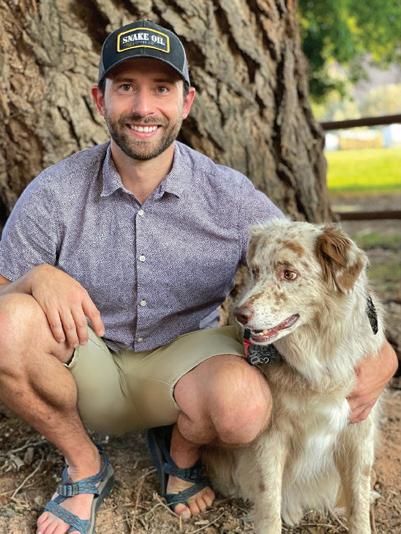
Councilmember-elect LUKE WOJCIECHOWSKI







